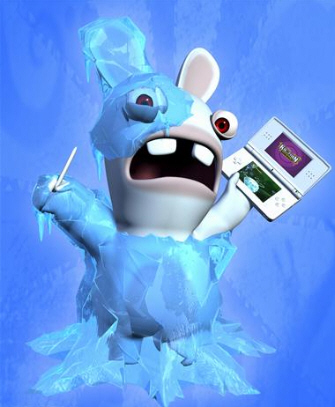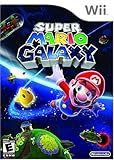
Everyone has been there before. You start a game, but never finish it. In fact, I know more people who never finish their games, than ones who do. And who am I to judge? I’ve done the same thing more times than I can count . . .
So what are the reasons why people don’t simply finish the games they play?
Too many other distractions: Life, Work, Girlfriend, friendships, relationships, party’s, etc. (in no particular order). There are lots of reasons.
We see the ending of our chosen game less often nowadays, simply because we have grown up. People simply don’t have the same amount of time to squeeze into games when they’ve got bills to pay and kids to take care of. And let’s be honest, when we were kids it was fine to put hours and hours into a game that didn’t have a save function, where we had to use long and complex passwords to recover where we last left off. But nowadays that simply wouldn’t fly. And even when it does, most people would choose convenience in saving over making a game more “hardcore” by limiting where or when you can save.
Of course, the under 18 crowd still makes up a significant portion of the game-playing and buying audience. The Entertainment Software Association (ESA) tracks statistics in regards to the age of gamers, and when PC & console stats are combined, they indicate that the average gamer is 33 years of age. So while minors do make up a big portion, the number of people who game and yet earn their own income and buy their own games has risen and risen, along with the age.
 The older generation’s obsession with retro games however does influence the newer generation; young fans who can’t afford their own games grow up with parents who still enjoy the hobby of their youth and pass it on. Nintendo’s stranglehold on gaming in the ’80s meant a lot of kids grew up knowing only the Nintendo Entertainment System for years. Today, multiple consoles — to say nothing of multiple handheld systems — mean far more choices are available from platform to platform. Playing Super Mario Galaxy on the Wii yields a far different experience from playing BioShock on the Xbox 360, which in turn is very different from playing Ratchet & Clank Future: Tools of Destruction on the PlayStation 3 or Brain Age on the DS. Distraction is inevitable; one frustrating boss battle can make the difference between whether or not a gamer chooses to stick with the adventure or move on.
The older generation’s obsession with retro games however does influence the newer generation; young fans who can’t afford their own games grow up with parents who still enjoy the hobby of their youth and pass it on. Nintendo’s stranglehold on gaming in the ’80s meant a lot of kids grew up knowing only the Nintendo Entertainment System for years. Today, multiple consoles — to say nothing of multiple handheld systems — mean far more choices are available from platform to platform. Playing Super Mario Galaxy on the Wii yields a far different experience from playing BioShock on the Xbox 360, which in turn is very different from playing Ratchet & Clank Future: Tools of Destruction on the PlayStation 3 or Brain Age on the DS. Distraction is inevitable; one frustrating boss battle can make the difference between whether or not a gamer chooses to stick with the adventure or move on.
Most games today offer hours and hours of side quests, unlockable levels, and endless collect-a-thons, many of which offer extra rewards beyond the game’s standard ending. Fans and critics both scrutinize the time it takes to complete games and then proceed to fume if a title does not breach 30 hours.
On the other hand, games can easily become too big and cumbersome, demanding gamers to invest hours upon hours into them, especially if they want to unlock everything. And that completionist streak is still a part of many gamers. Probably more so nowadays than at any time in the past.
Even legendary game developer Shigeru Miyamoto warned that game length might be getting out of hand in a 2005 interview with CNN. “There’s not a lot I want to play now,” he said. “A lot of the games out there are just too long. Of course, there are games, such as Halo or Grand Theft Auto, that are big and expansive. But if you’re not interested in spending that time with them, you’re not going to play.”
Gamers are generally vocal about the reasons why they don’t finish games. Some, such as real-life interruptions, can’t be helped. Others are relatively fixable, or at least offer opportunities for compromise.
 Then there are of course video game glitches, crashes and other bad, bad things. Heck I remember back to a time when none of me and my brothers could finish EarthBound on the SNES, because every single freaking time we’d play it, we would turn it back on one day to find all our save files gone. And yes, we even tried leaving it on for days on end. Of course, it never worked out as someone would eventually bump the system, causing it to freeze. I can remember fondly the day when my brother got to the master of the game on EarthBound, having left the system on, only to have his game get erased. Suffice it to say, much crying, throwing of the controller, cursing and utter defeat ensued. And of course, he NEVER played the game again, to this day . . . Thankfully, those days of having your memory card or battery back-up save files erased are pretty much over with; But new problems have arisen.
Then there are of course video game glitches, crashes and other bad, bad things. Heck I remember back to a time when none of me and my brothers could finish EarthBound on the SNES, because every single freaking time we’d play it, we would turn it back on one day to find all our save files gone. And yes, we even tried leaving it on for days on end. Of course, it never worked out as someone would eventually bump the system, causing it to freeze. I can remember fondly the day when my brother got to the master of the game on EarthBound, having left the system on, only to have his game get erased. Suffice it to say, much crying, throwing of the controller, cursing and utter defeat ensued. And of course, he NEVER played the game again, to this day . . . Thankfully, those days of having your memory card or battery back-up save files erased are pretty much over with; But new problems have arisen.
 It seems gaming systems completing dying on you has been a relatively popular problem with gaming machines going back to the PS2 and it’s infamous “Disk Read Error”. While many players have stopped gaming for a short period while they’re Red Ring of Death inflected Xbox 360’s get fixed by Microsoft, it doesn’t stop them from playing. But what it will and can do is keep them from re-playing the title they were on, whether due to their save information being destroyed, or simply because they’ve moved on to different games on different systems while said system is in the shop.
It seems gaming systems completing dying on you has been a relatively popular problem with gaming machines going back to the PS2 and it’s infamous “Disk Read Error”. While many players have stopped gaming for a short period while they’re Red Ring of Death inflected Xbox 360’s get fixed by Microsoft, it doesn’t stop them from playing. But what it will and can do is keep them from re-playing the title they were on, whether due to their save information being destroyed, or simply because they’ve moved on to different games on different systems while said system is in the shop.
In game glitches can also be a huge deal-breaker, if said glitch traps you in a place where you can’t make further progress in the game, as happened with The Legend of Zelda: Twilight Princess‘ Cannon Glitch. Thankfully these type of progress-halting errors are few and far between. But when they do happen it may forever turn-away the person from that game, if they will have to re-play it. And same can be said of game freeze-ups, which can pretty much happen on any game for any system. But as long as you save often, then it usually won’t turn that person away from finishing their game.
A video of the Zelda Twilight Princess Cannon Glitch
Of course there are many other reasons. Some people think most game endings suck, and because of it they simply don’t play through till the end. A lot of gamers are turned off by level-grinding, or by having to backtrack through earlier parts of a game just to reach the end. Some gamers get lost or stuck, and never return (though the day and age of GameFAQs has helped tremendously in that department). And lets not forget the off-putting fetch quests, like the one in The Legend of Zelda: The Wind Waker, which is the reason why I know very few people who actually finished that game. For shame.
 One major failing of RPGs has often been the fact that it doesn’t have a player log that shows what the player last did, and recaps the story. Often times, people move on to other titles, but that doesn’t mean they won’t come back or don’t want to come back. But as any RPG player can tell you, there’s been far too many moments when you get side-tracked with another game, only to forget either the plot, or where you have to go, in the RPG you were playing. And with games that large, it often means the player won’t bother to restart, or try and figure it out. They simply move on with their gaming life . . . sad sad reality it is. There are exceptions, such as in Pokemon Diamond/Pearl, which automatically brings up an activity log if a player turns on the game after a few days of rest. This reminds the player which towns he visited, which Pokémon he caught, and which trainers he defeated. Not all games need this feature, but far too many games that do need it, don’t have it. And it’s a crucial, crucial mistake. As it can mean the difference between a player finishing your game, or abandoning it.
One major failing of RPGs has often been the fact that it doesn’t have a player log that shows what the player last did, and recaps the story. Often times, people move on to other titles, but that doesn’t mean they won’t come back or don’t want to come back. But as any RPG player can tell you, there’s been far too many moments when you get side-tracked with another game, only to forget either the plot, or where you have to go, in the RPG you were playing. And with games that large, it often means the player won’t bother to restart, or try and figure it out. They simply move on with their gaming life . . . sad sad reality it is. There are exceptions, such as in Pokemon Diamond/Pearl, which automatically brings up an activity log if a player turns on the game after a few days of rest. This reminds the player which towns he visited, which Pokémon he caught, and which trainers he defeated. Not all games need this feature, but far too many games that do need it, don’t have it. And it’s a crucial, crucial mistake. As it can mean the difference between a player finishing your game, or abandoning it.
And while there are many reasons that gamers don’t finish their games, if you ask most people if that’s something they are proud of, they will tell you that they feel guilty about it. Most gamers WANT to finish their games. They are gamers after all.
And for every step back, there are a few steps forward. The Xbox 360 has been especially positive in this area, by not only tying the games you play to a person’s GamerScore, but also rewarding players for finishing their games and completing other tasks with Achievements. The Achievements not only add to the GamerScore, but also give them a little emblem on their profile. And their GamerCard can not only be shared with others on the Xbox Live network itself, but even via their myspace or other social networking site. This really encourages people to play more by not only offering tangible evidence that they did so, but also giving bragging rights for players who get excited over that kind of thing. More and more games also have unlockables for beating them, which is definitely an incentive. If the unlockable is good, that is.
Video that shows how to put your GamerCard on your Windows Desktop
But when it comes down to it, most gamers simply play games to enjoy it, or relax. And whether they beat a game or not, the simple fact that they keep playing (and buying) new games, is still a positive thing. Let’s hope it stays that way.
Quotes Via 1-Up
